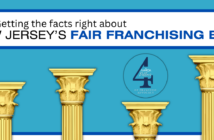One of the challenges hotel owner s and brands face is creating a true alignment of interests. While brands create and implement standards and policies for the benefit of the brand as a whole, the owner is less concerned about the reputation (and profitability) of the brand than the performance of the owner’s hotel. When a brand introduces new standards or implements new initiatives, it intends to enhance the brand but not an individual property. A rising tide might lift all ships, but some will float higher than others, some hotels might not benefit from the costs of implementing new standards, and some might be swamped by the tide. Any approach to working with brands begins by understanding the interests of the owner and the brand often aren’t aligned.
Simply stated, brands are focused on increasing the value of the entire portfolio of properties, while hotel owners are concerned about the value and income of a single property (or their portfolio of hotels). Brands can “sacrifice” the profitability of a single property so long as the value of the portfolio is enhanced. Moreover, brands typically are compensated on a “top line” basis – royalties and management fees are calculated on the basis of gross revenues, whether or not the hotel is profitable, and both brand managers and franchisors are additionally compensated for their expenses. This is just the opposite for owners, who need to profit from each property to make the investment in building and maintaining a hotel justifiable.
The challenge to both owners and brands, then, is how to create a relationship that recognizes the differing goals of brands and owners, and reduces the gap between the two.
CHOOSING THE RIGHT BRAND
Selecting the right brand is the first step in achieving an alignment of interests. This, in itself, is challenging. Many owners come to the table with a pre-conceived notion of what the best brand for a property might be. The owner may have enjoyed staying at a particular hotel or might want to have a particular flag for bragging rights. These and other factors can cause a prospective owner to ignore the hard facts of whether a particular brand will be successful.
There also are limits to the choices available to owners. Hotel owners typically request that a brand agree, for a period of time, not to open a competing hotel in their market area, which can limit the available choices. Brands also, appropriately, will look carefully before approving a hotel that directly competes with another hotel in their portfolio. As brands increase the number of flags in their portfolios – Marriott alone has 30 separate flags – the number of available flags in a particular location can actually shrink.
Owners and brands need to be realistic in choosing the right flag for a property and be prepared to make hard choices when it comes to selecting the brand.
DO YOUR HOMEWORK
Owners and brands typically consider projections of revenues, costs, and profitability in making a brand decision. While the consultants who prepare these forecasts are skilled, their work must be reviewed critically, in part because they are, by necessity, retrospective. Sometimes, an unanticipated event will make projections unreliable: Forecasts presented in January 2020, based on the prior years’ experience, would not, and could not, have predicted a virtual shutdown of the hospitality industry beginning in the following March. Similarly, projections in March 2021 based on the experience of the prior year are equally unreliable.
At the same time, an informed and critical observer will consider factors that might not be shown in the forecasts. What additional properties, particularly competing properties, are expected to enter the market area? Is the location of the proposed hotel a target for union organizing, or is the local government considering revisions to zoning, tax, or other policies? Are the assumptions underlying the projections – sources of demand, travel patterns, etc. – reasonable and reliable? Since owners often develop in their own backyards, they may have “inside knowledge” that can be applied to the project.
NOT ALL FLAGS ARE EQUAL
A multitude of flags can give an owner a multitude of choices. However, owners need to recognize that not all flags, even when they share reservations and other brand resources, are equal. When a brand has multiple flags, it may be hard to differentiate one from another, and may be difficult for a brand to give each of its flags adequate attention, especially now, when the hospitality business is attempting to recover from the devastation of the pandemic. Periodically, a flag might be neglected, and owners should consider that possibility as well.
Owners also should consider very carefully investing in a new flag concept. Brands develop new flags to provide the perfect solution to each traveler. But starting a flag from scratch or acquiring and attempting to invigorate a flag can be difficult. When a flag doesn’t gain adequate acceptance and loyalty, the owner suffers, and owners should seek compensation and assurances if they decide to be the guinea pig for a new idea.
THE AGREEMENT IS IMPORTANT
Many commentators, including those with experience in the industry, argue that the brand’s track record is more important than the management or franchise agreement underlying the property. An owner should verify the track record before making a commitment. However, the track record alone is not enough. First, while every brand has a list of highly touted successes, every brand company also has a less-publicized list of disappointments. The track record goes both ways. Beyond that, a franchise or management agreement is a complex document that identifies the expectations of parties for a period of 20 years or more. During that period of time, a good reputation can turn into a disappointment, and relying on decades-old assumptions may be disastrous.
All of these factors lead to a key conclusion: Owners need to have a meaningful say in hotel operations. While owners engage brands because of brands’ expertise, resources, personnel, and reputation, the relationship between owners and brands is “asymmetrical,” and the goals of the two differ. Brands would like an agreement where the owner simply hands over the keys and hopes for the best, but today’s owners are, and should be, vitally interested in operations. Owners should have clear oversight and approval rights over budgeting, expenditures, and key operating decisions.
BRIDGE THE GAP
The differences between owners and brands can be resolved by applying expertise and experience in the options and alternatives available to the parties. Owners need to engage advisors who can recommend meaningful and practical compromises, and who are known to be credible players in the industry.




